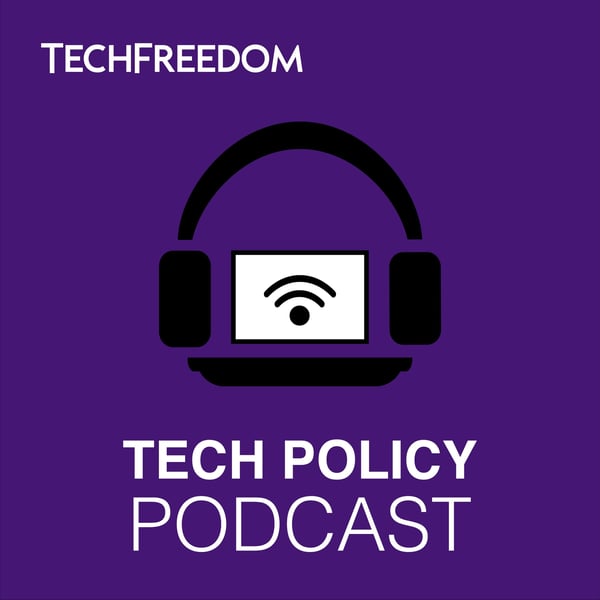#214: Information Intermediaries in a Nutshell
Tech Policy Podcast
TechFreedom
4.8 • 45 Ratings
🗓️ 29 January 2018
⏱️ 23 minutes
🧾️ Download transcript
Summary
Transcript
Click on a timestamp to play from that location
| 0:00.0 | Welcome to Tech Policy Podcast. I'm Ashken Kazarian. On today's show, we're going to talk about |
| 0:05.0 | information intermediaries, and we're joined by Tiffany Lee, resident fellow at Yale Law School, |
| 0:10.0 | who leads their Vicka Media Initiative on Intermediaries Information. She's also a transatlantic |
| 0:15.6 | digital debates fellow. Tiffany, thank you for being here. Thanks. It's great to be here. |
| 0:20.0 | Tiffany, so what is that initiative that you're leading at Yale Law School? |
| 0:24.4 | So I am a resident fellow at Yale Law School's Information Society Project, an organization I know of which you are very well aware. |
| 0:33.3 | Yes, hello to Professor Balkan. Hi, Professor Balkan. In addition to that, that role, I'm specifically leading a new initiative for the ISP, |
| 0:43.7 | and it's called the Wikimedia and Yale Law School Initiative on Intermediaries and Information. |
| 0:50.3 | So this is a new initiative dedicated to studying issues about online intermediaries, involving |
| 0:55.9 | things like free speech, open internet, intermediary liability, and more. |
| 1:01.3 | So information intermediaries have been one of the most powerful players when it comes to digital |
| 1:06.3 | everything. Free speech online, trade. They've been these platforms that are, you know, open to |
| 1:15.1 | everyone. Why are they so important? And how would you define them? So I think generally |
| 1:22.5 | speaking, an information intermediary is an online intermediary that allows for the free communication or |
| 1:31.5 | exchange of ideas or information. An intermediary, even more broadly speaking, is a neutral third |
| 1:37.3 | party that hosts or provides a space or venue for people to post information or exchange information. |
| 1:45.0 | And that information can include specific content like text or photos or video, but it can also |
| 1:50.0 | include data, for example, data going over your local ISP. |
| 1:54.0 | So before we had, let's say, internet in the same way we have it now and the way we know it, |
| 2:00.0 | in the shape we know it. |
| 2:03.1 | Spreading the information was one of the most important things when you wanted to raise |
| 2:07.4 | awareness of some kind of shift in politics or, you know, when there was a coup that sometimes, |
... |
Please login to see the full transcript.
Disclaimer: The podcast and artwork embedded on this page are from TechFreedom, and are the property of its owner and not affiliated with or endorsed by Tapesearch.
Generated transcripts are the property of TechFreedom and are distributed freely under the Fair Use doctrine. Transcripts generated by Tapesearch are not guaranteed to be accurate.
Copyright © Tapesearch 2025.

